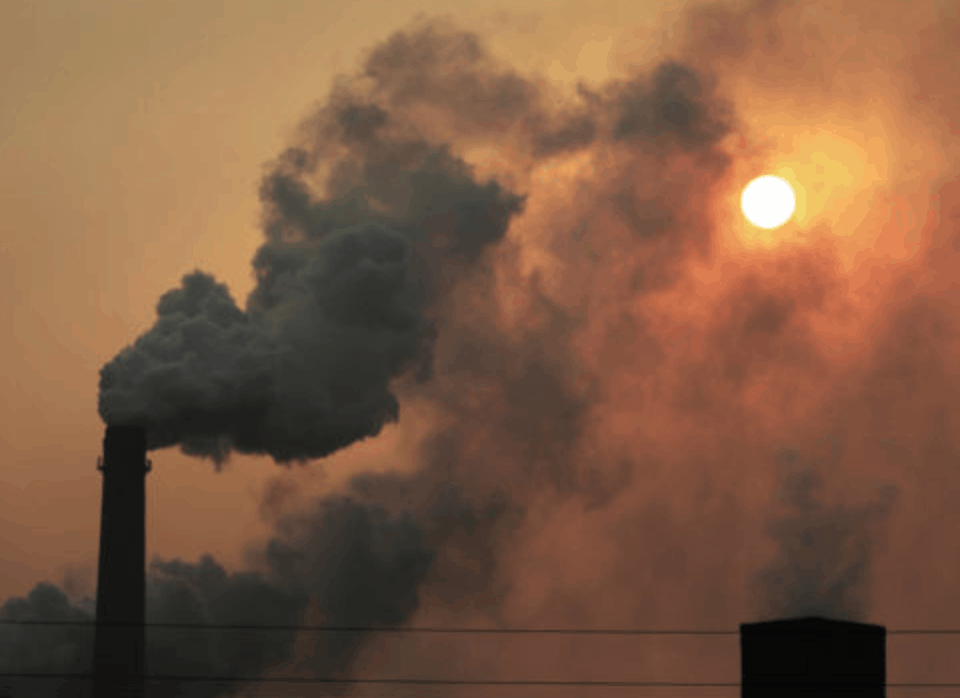Open fires cause a great deal of pollution as we have mentioned numerous times before. Open fires are inefficient and are often used to burn things such as unseasoned wood, general waste and much more.
Around the world, it’s estimated that around one billion tonnes (around the weight of around 2,500 jumbo-jets) are burnt each year through open and uncontrolled fires. When we burn wood, harmful pollutants are released including PM2.5, which can have a devastating impact on our health.
A lot of burnt waste happens in developing countries, and a lot of this burning involves plastic. Across the six countries of China, India, Brazil, Mexico, Nigeria and the Philippines, Coca-Cola, PepsiCo, Uniliver and Nestle create enough plastic pollution to cover 83 football pitches every single day.
As this plastic waste cannot be recycled or disposed of in a proper fashion, it is often burnt, which produces major problems with air pollution, it also contributes to climate change.

Cop26
At Cop26, the United Nations Climate Change Conference, taking place in Glasgow from 31 Oct to 12 Nov, a number of developing countries are committing to net-zero targets, albeit some years after than developed counties. India has committed to be net-zero by 2070. China, where the President of the county did not attend the conference, said it is setting 2060 as the target to become net-zero, while Brazil has given 2050 as their target.
What is Net-Zero?
Net-zero has been mentioned a lot recently, but what does it mean? Net-Zero in simple terms relates to the balance between the number of greenhouse gases produced, and the amount removed from the atmosphere. If you remove the same amount you produce, you’re considered to be carbon neutral – net-zero.
Achieving Net-Zero and Burning Wood.
Despite some misleading information in the media, burning wood, as long as it’s done in an efficient way such as using an Ecodesign Ready stove, is a very green way to keep warm. You must follow these tips however if you are to maximise their green credentials and do your bit in helping to become carbon neutral.
Wood Burning Tip – Make sure your wood is ready to burn: Dry wood produces less smoke and more heat, and so is much cleaner and better for the environment. If you’re cutting your own logs for firewood, store them in a dry area, and allow them to dry for at least 12 months, for wood like oak, this can be as long as 24 months. Before you burn, use a moisture meter so you can check the water content of the logs. They should be less than 20%. Having too high a water percentage will increase pollution, produce a poor level of heat output and cause tar to form in your chimney. It’s important you get the right level.
In the UK and other rich countries, the burning of waste usually takes place in EfWs (Energy from Waste Plants). These plants use equipment to control the burn while producing heat and electricity.
Limited Options:
The truth is people usually burn waste when their options are limited. In lower and middle-income countries around 2 billion people don’t have their solid waste collected at all, which means they have to take responsibility for their own removal of waste – refer to the key points at the start of this article. Herein lies a huge problem. With limited space to dump rubbish, and even more limited options to dispose of waste, a lot of people resort to burning rubbish.
Wood Burning Tip – The Best Wood: Ash is thought to be one of the very best woods for burning. Ash creates a steady flame and a good heat output. Unlike other wood, ash can be burnt when green, but like with most wood burns at its very best when it is dry. Ash tends to have very low moisture content when alive, which is the main reason why you can burn it when it is green.
There need to be better facilities in these middle and lower-income countries to help educate people about the dangers of burning waste. However, this needs to be backed up with incentives and support from the governments in these countries, to make sure all nations are helping contribute to cleaner air for all. Cleaner air will mean a better environment, fewer hospital admissions due to breathing difficulties, and ultimately fewer pollution-related deaths. Action is needed now.
Burning Waste in UK – What Are Your Options?
There are no rules against burning rubbish on a bonfire in your garden. However, there are rules in place to prevent bonfires from causing a nuisance to neighbours or a hazard to safety. These include the following points:
- It is an offence under the Environmental Protection Act 1990 (as amended) to get rid of domestic waste in a way that may cause pollution to the environment or cause harm to health, such as by burning it. This means you are not allowed to burn certain types of waste that can create excessive smoke and fumes.
. - Under section 161A of the Highways Act 1980, you are not allowed to let smoke from a fire to drift across a nearby road. You will face a fine if it poses a danger to traffic or leads to injury.
. - If bonfires are regularly a nuisance to the point that they affect a person’s enjoyment of their property (such as smoke and ash drifting into their garden), then the bonfire may be considered a nuisance and this can result in an ‘abatement notice’. Failing to adhere to a notice could lead to a fine of £5,000.








